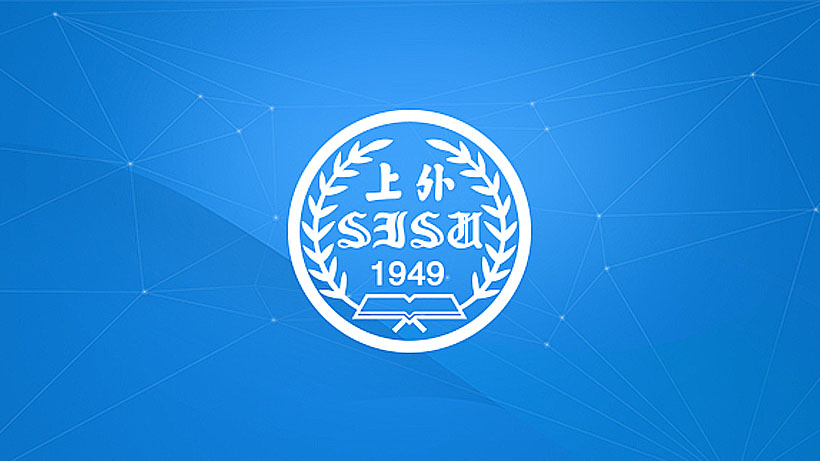上外法硕“法律职业与涉外法务”讲座系列
主题:神经元法学与法学新趋势
主讲人:吴旭阳
时间:2017年03月24日(星期五)13:30-15:30
地点:上外虹口校区1号楼211室
新闻报道

上外法硕“法律职业与涉外法务”讲座系列
主题:神经元法学与法学新趋势
主讲人:吴旭阳
时间:2017年03月24日(星期五)13:30-15:30
地点:上外虹口校区1号楼211室
新闻报道
语言研究院、中国外语战略中心成立十周年庆祝活动
名家讲坛系列
讲座主题:中文理解对欧洲语言形式理论的解构
主讲人:申小龙教授 (复旦大学中文系教授)
主持人:赵蓉晖教授 (上海外国语大学语言研究院教授)
时间:2017年3月31日 13:30-15:30
地点:上海外国语大学虹口校区 图书馆606室
新闻报道
“道与往” 孔子《论语》与西方先哲思想之比较
10月23日(周一)
19:30-21:30
新闻报道
“学与用” 孔子《论语》与西方先哲思想之比较一
6月21日(周一)
19:30——21:30
新闻报道
“仁与爱” 孔子《论语》与西方先哲思想之比较一
5月22日(周一)
19:30——21:30
新闻报道
从剧本到表演——《威尼斯商人》
9月16日(周六)
14:00——16:00
新闻报道
从剧本到表演——《哈姆雷特》
4月29日 周六
14:00——16:00
新闻报道

本活动是院系教学质量提升系列讲座之一。
新闻报道

Teachers of literature around the world are confronted with a stark reality: shrinking reading public of literature in society, and dwindling enrollment of literary majors in colleges and universities. The diminishing interest in literature is an undeniable fact recognized in both Western and Eastern literatures. In a way, as most people in society today are likely to read almost anything but literary works on iPhone, iPad, and online, we may even fear that in the foreseeable future, literary studies is likely to become an endangered species among the institutionalized academic disciplines, as Derrida somberly predicted in the 1980s. The apocalyptic vision imagined by Derrida has not yet come true, but the “technological regime of telecommunications” has already prompted many thinkers and scholars to speculate on the present-day fate and future of literature. Some of them have raised these thought-provoking questions: Is literature today what it used to be? Is it able to survive in the age of telecommunication? Is what we have taken for granted as literary being migrating from literary works to virtual spaces generated by computers, iPads, iPhones, Twitter, WeChat, Blogs, and online websites? Whatever answers one may provide, the reality is that literature in its traditional sense is being challenged and is struggling for survival in schools, colleges, and society. It is under these not so rosy circumstances for literary studies that Dr. Ming Dong Gu was invited by J. Hillis Miller to read his newly co-authored book, Thinking Literature across Continents (Durham and London: Duke University Press, 2016) and participate in discussing the fate of literature in our time. Inspired by the book, Dr. Gu offers his own observations on the current conditions of literature and suggests practical strategies to cope with the predicament faced by literary studies in the age of globalization and telecommunication.
新闻报道
区域国别研究系列讲座第6讲
2016年11月9日,共和党候选人唐纳德•特朗普以306票大胜希拉里,成功当选为美国第45任总统。虽然总统大选已落下帷幕,但美国社会并未因票选结果的确定而趋于平静,抗议呼声不绝于耳,示威游行此起彼伏,政局依然充斥着分裂和混乱。美国民众纷纷表示对未来感到迷惘,调查走访的美国12家各类智库和机构也表示对美国今后的道路表示“不确定”。但就特朗普而言,而立之年已在商界摸爬滚打的他,四十多年来始终贯彻自己自己独特坚定的政商策略。本次讲座将从特朗普四十年来的政商成果和行事风格出发,分析蕴含在不确定性中的确定性,指明美国未来前进的方向,继而为中国今后如何处理中美关系提出建议。
本讲座主要考察分析以下几个方面的问题:(一)美国民主制度所面临的的三大挑战;(二)特朗普当选的实质分析;(三)特朗普个人的性格特征和政治意识;(四)特朗普执政团队人员设置的四大系统;(五)特朗普竞争性的人员管理方式;(六)特朗普政府的人才任命问题;(七)特朗普与国会的共识和分歧;(八)特朗普的贸易政策对中国的影响。
新闻报道